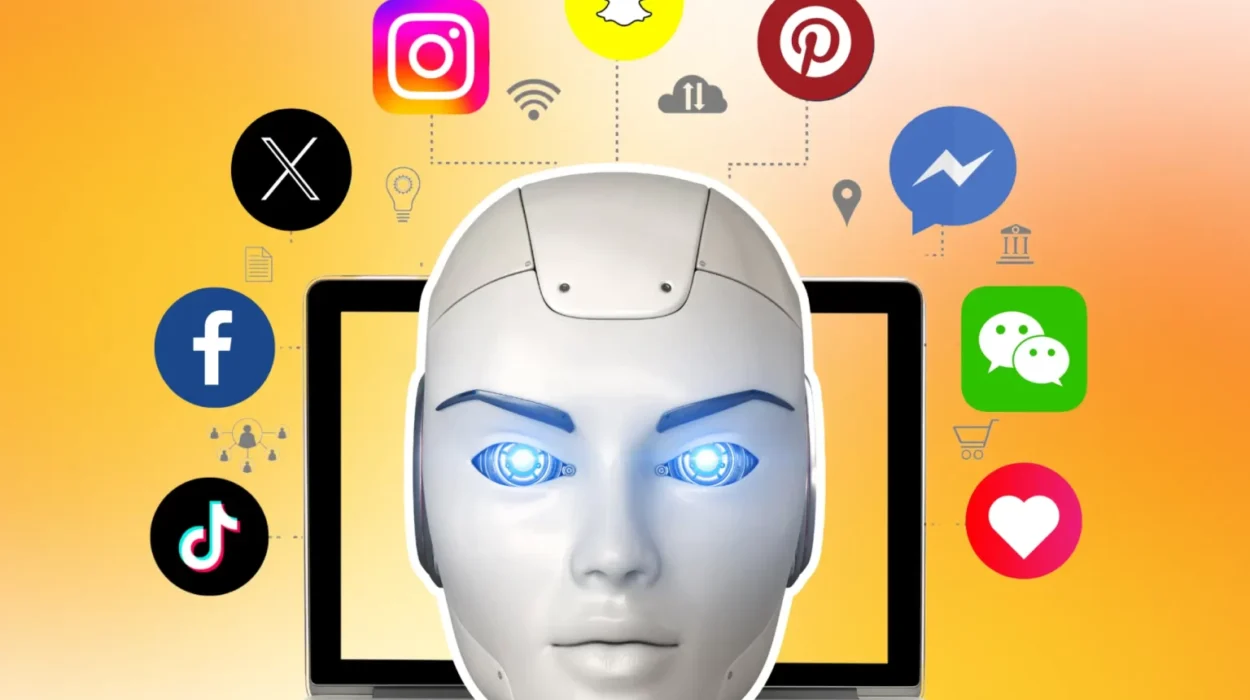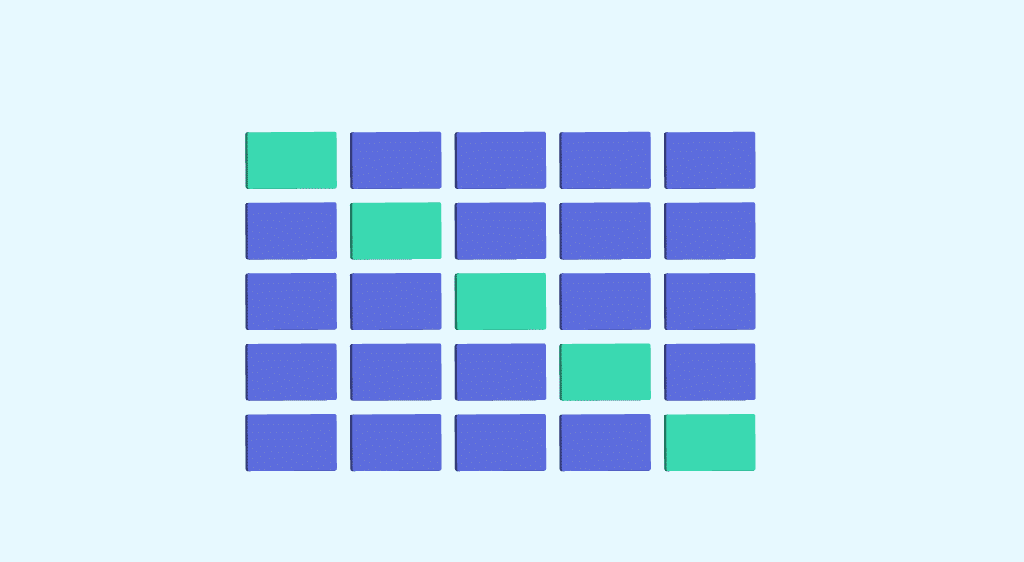It’s 2:38 a.m. and your eyes are glued to your phone’s cold, glowing glass. The blue light flickers across your face, dancing shadows across your bedroom wall. You’re scrolling, half hypnotized, half comforted. Maybe you’re shopping for new running shoes. Maybe you’re doomscrolling the latest geopolitical disaster. Maybe you’re chatting with someone you love, trading memes that say what your heart is too shy to confess.
In that quiet, private moment, you feel safe—alone with your thoughts, your emotions, your digital self. You imagine you’re in control. That the data pouring from your fingertips belongs to you. That your late-night search queries are secrets whispered into the dark.
But they’re not.
Somewhere, silent servers whir to life, recording each swipe, each click, each moment of hesitation. Your shopping habits, your reading preferences, your location, the way you type, the way your heart flutters for a name in your inbox—it’s all being collected, categorized, and sold. You are not alone in your digital night.
And so the question hangs over us all like a neon sign blazing across cyberspace: Will we ever have a truly free and private Internet?
It’s a question as urgent as it is philosophical. Because the Internet, once dreamed of as humanity’s great equalizer—a place of freedom, anonymity, and unshackled knowledge—is becoming something else. A labyrinth where your every step is tracked. A bazaar where your identity is the product for sale. A fortress under siege by governments and corporations alike.
In the grand story of the Internet, freedom and privacy were not always illusions. Once, they were the promise. Once, they were the beating heart of this world-spanning network. But somewhere along the way, that promise splintered.
The Internet We Were Promised
The Internet was born in idealism. Its pioneers were dreamers—computer scientists, mathematicians, engineers—who envisioned a network to share knowledge, bridge cultures, and empower individuals.
In the earliest days, the net was raw and anarchic. Academics and hobbyists traded messages in plain text. Bulletin boards buzzed with arguments over Star Trek plotlines and Unix code. Usenet groups flourished, each one a microcosm of human obsession and debate. There were no algorithms nudging your eyeballs to stay on the page longer. There were no personalized ads chasing you from website to website like a jilted lover.
It was not private, precisely—but it was free in spirit. Identity was malleable. You could be whoever you wanted: a teenage girl debating philosophy with a 50-year-old professor, a software engineer from Texas running a forum about ancient Roman history. Your words mattered more than your credentials. And that anonymity felt liberating.
Tim Berners-Lee, the father of the World Wide Web, envisioned an open space where humanity’s knowledge could be accessible to all. “This is for everyone,” he declared in 2012, waving a sign at the London Olympics. Those four words became a mantra. An Internet for everyone—free of gatekeepers, free of tyranny, free of surveillance.
Yet even in those halcyon days, a quiet tension simmered beneath the surface. Because freedom, as it turns out, has a cost. And privacy was never truly baked into the Web’s DNA.
The Great Bargain We Didn’t Understand
When the Web went mainstream in the 1990s, it sparked a commercial revolution. Suddenly, millions of ordinary people flooded online, hungry for news, entertainment, community, and commerce.
The question arose: How would all this digital wonder be funded?
Banner ads were clumsy but harmless. Pop-ups were annoying but mostly benign. Few realized they were witnessing the first tremors of an economic model that would come to dominate the Internet: free services paid for by the currency of personal data.
At first, the tradeoff seemed invisible. Search engines were free. Email accounts were free. Social networks blossomed with promise. Friends reconnected, revolutions were organized, memes were born. The platforms assured us that collecting some data was just the price of improving the service.
What we didn’t know—and what many still don’t truly grasp—is the depth of what we were giving away. Every click, every like, every message became fuel for vast machine-learning models mapping human behavior.
Our digital lives were transformed into commodities. We were no longer merely users; we were products.
Privacy, once the default, became a premium feature.
The Rise of the Digital Panopticon
By the 2010s, the Internet had matured into a handful of massive platforms: Google, Facebook, Amazon, Apple, Microsoft. They offered sleek apps and personalized experiences. Their tools were beautiful, powerful, indispensable. But behind the curtain, a darker truth emerged.
Surveillance capitalism was not a conspiracy—it was the business model.
The platforms tracked every movement across the Web. They stitched together data from smartphones, smart speakers, fitness trackers, and browser cookies. They knew where you were, who you were with, what you were buying, how you were feeling. They built “shadow profiles” of people who weren’t even signed up.
This data wasn’t just for targeted advertising. It was for prediction. If a company can predict when you’re about to get sick, switch jobs, fall in love, or become depressed, they can shape what you see, what you want, and even how you vote.
It wasn’t just corporations. Governments, too, awoke to the power of the digital panopticon. Edward Snowden’s 2013 revelations peeled back the curtain on global surveillance. The NSA and its partners vacuumed up Internet traffic, phone metadata, chat logs. China perfected digital authoritarianism, weaving surveillance into the fabric of daily life. Russia, Iran, Saudi Arabia—each learned to bend the Internet to their own political ends.
In democracies and dictatorships alike, privacy came under siege. The digital world began to feel less like an open frontier and more like a cage of glass walls.
The Illusion of Control
In the 2020s, people began to wake up. Documentaries like “The Social Dilemma” showed how algorithms manipulated attention. Political scandals revealed how data-driven campaigns micro-targeted voters. A growing chorus demanded privacy protections.
But change has been excruciatingly slow.
Every few months, a platform updates its privacy policy. A new law appears: GDPR in Europe, the California Consumer Privacy Act. Regulators talk tough about billion-dollar fines. But the machine churns on.
You can clear your cookies. You can switch to privacy-focused browsers like Brave. You can use end-to-end encrypted messengers. You can install ad blockers, change your DNS, cloak your IP. But true privacy remains elusive.
Because surveillance has seeped into the architecture of the Internet itself.
A simple web page might load dozens of trackers. Fonts, analytics scripts, ad networks—each a needle threading your identity across sites. Even when you try to hide, your “fingerprint” remains: your screen size, your device model, your browser plugins. All unique. All traceable.
Meanwhile, AI grows more sophisticated. Machine-learning models can infer astonishing details from partial data. Give an algorithm a handful of geolocation pings, and it can guess where you live, where you work, your social circle. Feed it your likes and it predicts your politics, sexuality, mental health.
The tools we trusted to protect us often betray us. VPN services log your traffic despite advertising total anonymity. Encrypted apps leak metadata. Even the Tor network, once the ultimate shield, faces new threats from state-level actors.
Control, it turns out, is an illusion. Privacy has become a game of cat and mouse, and the cats keep getting smarter.
Digital Freedom Under Siege
Freedom and privacy are intertwined, like two strands of DNA. When one erodes, so does the other.
Look around the world, and you’ll see the Internet becoming less free. The authoritarian playbook is clear: control information, silence dissent, monitor citizens.
China’s Great Firewall blocks Western platforms and censors keywords in real time. Police monitor chat groups. Facial recognition cameras dot city streets. Digital “social credit” systems punish those who stray from the party line.
Russia restricts foreign social networks, demands data localization, pressures platforms to silence critics. Iran throttles Internet speeds during protests. Turkey jails citizens for tweets. India orders shutdowns in restive regions.
Even democracies flirt with digital overreach. The UK’s Online Safety Bill raises alarms about breaking encryption “in the interest of child safety.” The U.S. debates laws that might force platforms to scan private messages for illegal content, creating backdoors governments could exploit.
The Internet, which promised to tear down borders, is fracturing. Nations erect digital walls. Data sovereignty becomes a rallying cry. The free flow of information grows turbulent, threatened by geopolitics, corporate interests, and national security concerns.
The Cost of Convenience
Part of the tragedy is that we—the users—enable this surveillance. Not because we’re evil or stupid, but because we’re human.
We crave convenience. We want personalized recommendations. We want our photos auto-tagged. We want instant translation, instant gratification, instant connection.
So we sign up for “free” services. We click “accept all cookies.” We let our smart assistants eavesdrop so they can answer questions faster. We trade privacy for dopamine.
And who can blame us? The digital world has become essential. It’s how we work, how we learn, how we connect. For many, opting out of the surveillance economy means opting out of society itself.
The companies know this. That’s why privacy is always framed as a feature, not a right. It’s something you pay for—a subscription to keep your data “safe.” Privacy has become a luxury product, like organic food or designer clothes.
But shouldn’t privacy be a human right, not an upsell?
Technology: Friend or Foe?
Some see salvation in technology itself.
Cryptographers build tools like Signal, which encrypts messages so thoroughly even its creators can’t read them. Developers create decentralized networks, like Mastodon and Matrix, where data isn’t stored on central servers ripe for harvesting.
Blockchain enthusiasts dream of Web3, a decentralized Internet where users own their data and transactions are transparent and trustless.
Yet even these solutions carry shadows.
Decentralized networks can be hard to use, fragmented, or vulnerable to spam and abuse. Cryptocurrencies breed scams and speculation. Blockchain projects talk a big game about privacy, but most public blockchains expose transaction histories for all to see.
AI, too, is a double-edged sword. It can help detect fraud, combat misinformation, protect systems from intrusion. But it can also become the perfect surveillance tool—analyzing faces, voices, and even emotions.
Technology alone cannot save privacy. Because privacy is not just a technical challenge—it’s a human, political, and economic one.
The Battle for Legal Protections
If technology can’t save us alone, what about the law?
Europe’s GDPR was hailed as a landmark. It gave users rights over their data, including the right to access, correct, and delete it. Companies face steep fines for violations. It forced websites to display privacy banners that now clutter screens across the continent.
Yet critics argue GDPR has become a compliance exercise rather than a revolution. Small businesses struggle under paperwork. Giants like Meta and Google find ways to adapt, paying fines as the cost of doing business. Privacy has become a labyrinth of legal disclaimers.
In the U.S., privacy law remains patchy. California passed the CCPA, giving users new rights, but federal legislation lags behind. Each state creates its own rules, leaving companies and consumers in a patchwork maze.
Other nations follow suit, but with mixed motives. Russia and China cloak surveillance laws under the guise of data protection. Authoritarian regimes use “privacy” to justify blocking foreign services or forcing companies to hand over encryption keys.
Laws matter. But laws can be twisted. And enforcement requires political will.
The Human Factor
Here’s the uncomfortable truth: The biggest threat to privacy is often ourselves.
We overshare. We post our children’s names and birthdays, our heartbreaks and triumphs. We check in at restaurants. We upload our genetic code to ancestry websites. We plug our homes full of smart devices that listen, watch, record.
Even those who know better slip up. Privacy requires constant vigilance. And vigilance is exhausting.
So we resign ourselves to fatalism. We shrug. “I have nothing to hide,” we say, forgetting that privacy isn’t about hiding wrongdoing—it’s about the dignity of being able to choose what we share.
It’s about being able to explore controversial ideas without fear. About discussing sexuality, health, religion, politics, or simply private emotions without strangers peering in.
When privacy erodes, freedom erodes. When we feel watched, we self-censor. Creativity wilts. Democracy suffocates.
A Glimmer of Hope
Yet even amid the gloom, hope flickers like light through fiber optic cables.
Young people, digital natives raised in the algorithmic age, are growing wary. They seek alternatives. They flock to encrypted apps, delete Facebook, choose devices that emphasize privacy. “Privacy” has become a brand differentiator, and companies scramble to adapt.
Activists fight for digital rights. Journalists expose abuses. Whistleblowers risk their freedom to reveal the truth. Researchers develop new cryptographic tools. Artists and writers keep reminding us that the Internet can be more than a shopping mall and surveillance grid.
And some governments, however imperfectly, are beginning to grasp that privacy is not just a personal concern—it’s a pillar of a healthy democracy.
The dream of a free and private Internet is not dead. It is bruised, battered, and buried beneath a mountain of ad tech and politics. But it still breathes.
The Path Forward
So, will we ever have a truly free and private Internet?
The honest answer is: it depends.
It depends on laws crafted not just for corporations, but for people. On regulators willing to enforce them, even against the world’s most powerful tech giants. On technologists building tools that prioritize privacy by default, not as an afterthought. On business models that don’t demand our personal lives as payment.
It depends on us.
On our willingness to care. To demand better. To learn, even imperfectly, how to protect ourselves. To refuse the notion that privacy is obsolete.
A truly free and private Internet will never be perfect. There will always be tension between security and openness, between anonymity and accountability. There will always be criminals exploiting privacy tools, governments seeking backdoors, corporations tempted to track.
But perfection isn’t the goal. The goal is an Internet where ordinary people can communicate, learn, love, and dissent without feeling the hot breath of surveillance on their necks. An Internet where privacy is not a luxury good, but a human right.
The Internet We Must Build
In the end, the Internet is not a machine. It’s a mirror of us—our ambitions, our flaws, our choices.
We built this digital world. And we can rebuild it. Not overnight. Not without struggle. But piece by piece.
It begins with rejecting fatalism. With understanding that privacy and freedom are not just technical settings—they are the foundations of human dignity. It means holding companies accountable, pushing lawmakers to defend civil liberties, and choosing tools that respect our autonomy.
It means teaching our children that privacy matters. That freedom matters. That convenience is never free.
And it means remembering that behind every click, every tap, every packet of data, there is a human story—a life, a dream, a soul that deserves respect.
In that respect lies hope.
Because if the Internet has taught us anything, it’s that change can come from anywhere—a college dorm room, a garage, a moment of inspiration at 2:38 a.m. Perhaps the next Tim Berners-Lee, the next privacy visionary, is already out there, coding by the glow of a laptop screen.
Perhaps the truly free and private Internet isn’t a relic of the past, but the revolution of tomorrow.
It’s up to us to build it.






